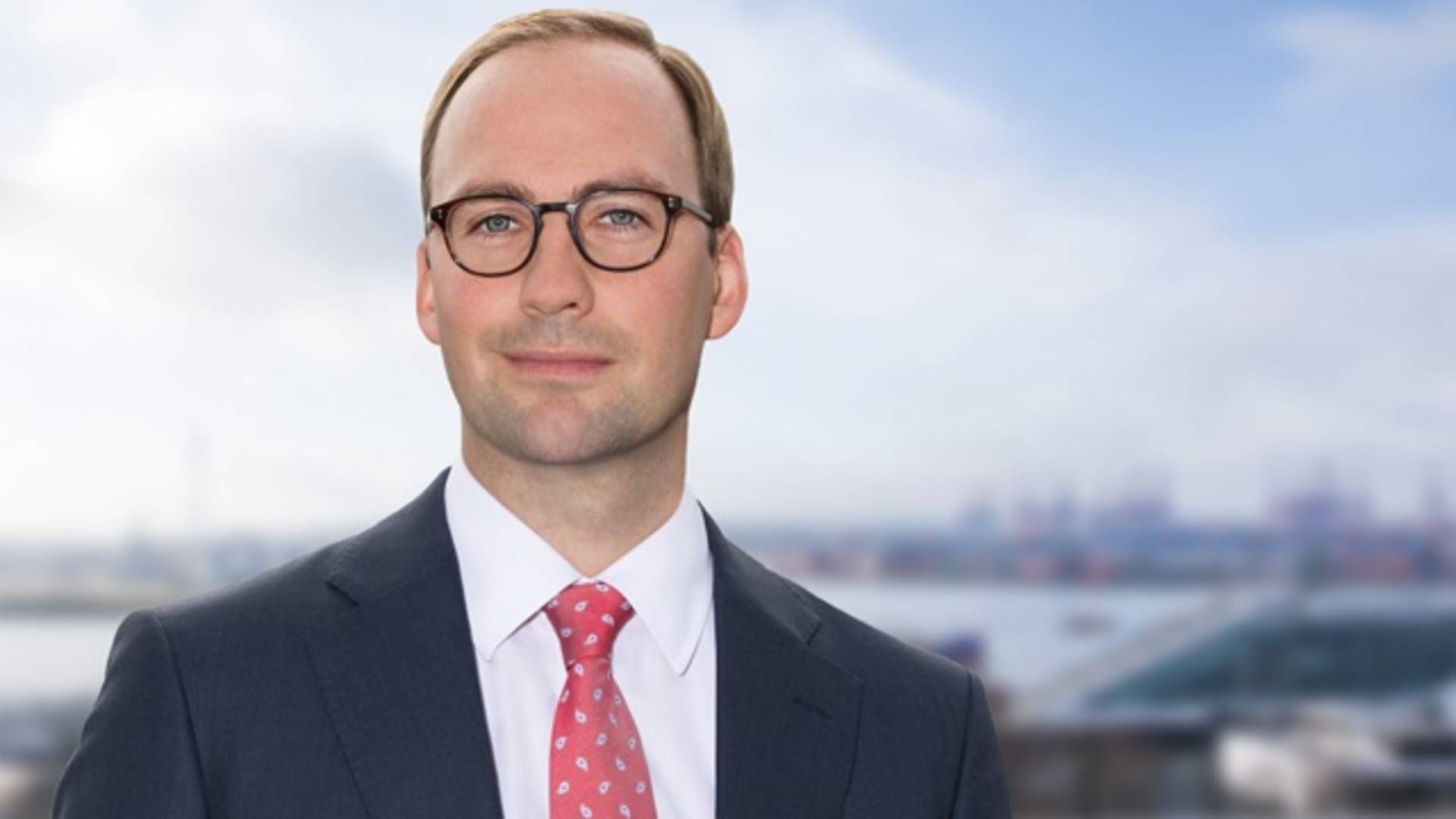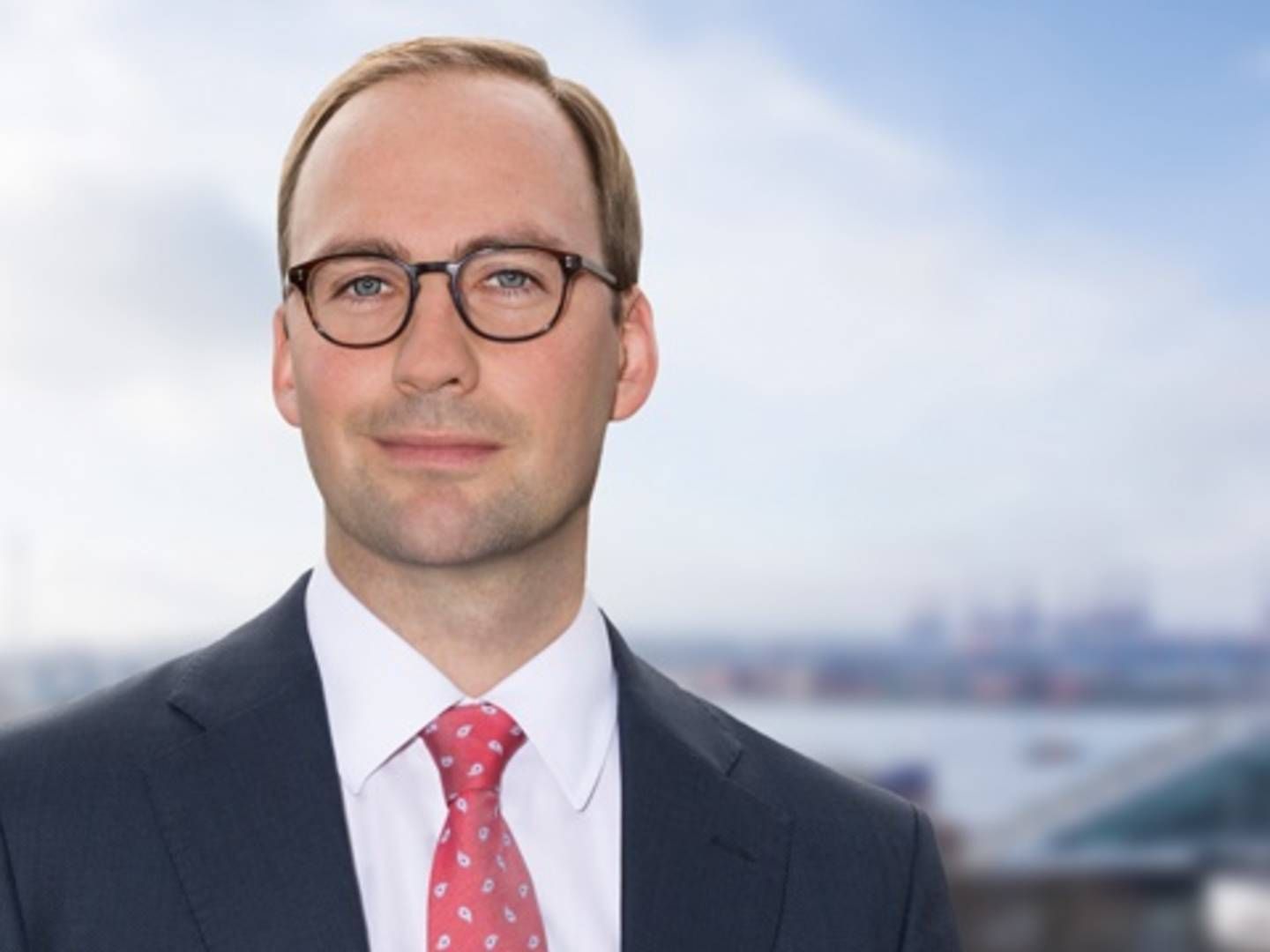MPC has already secured high revenue for next year with 85% coverage

Sold out this year, almost 85% coverage in 2023 – and so far, roughly 60% the year after.
For a shipowner such as MPC Container Ships ASA, whose focus is small to mid-sized container vessels, a market exposure of this size is unique, states CEO Constantin Baack in an interview with ShippingWatch.
MPC Container Ships has just made an upward adjustment to its full-year expectations, guiding for revenue of USD 570-585m, and already now, revenue of roughly USD 550m has been ensured for next year.
The company owns 64 container vessels, which it charters to large carriers and regional operators. When MPC Container Ships calculates its available capacity, it does so in ”available days.” There are almost none of these left for this year, and the provisional coverage for 2023 stands at 85%.
“Every additional day obviously adds to that picture. So, for next year we have such a high visibility, and that is unique for our segment,” says Baack.
And it does not stop here. Already now, around 60% of the capacity is covered in 2024, equivalent to USD 400m.
“That visibility is at fairly high rates that we have secured now. We are also exposed to market downturns for the open days, but we have a very stable foundation.”
In other words, MPC Container Ships can look forward to a couple of profitable years. This is a marked development compared to a few years ago, when the company was in a deep crisis, threatened by bankruptcy.
In 2021, already, the situation had completely turned around, and the year saw a record result. All signs now point to a continuation of this progress.
Long contracts
Long-term contracts are a significant explanation for such success. Whereas container carriers – previously, at least – often operated with one-year contracts, MPC’s charter contracts are often of two-to-three years.
This also meant that it took some time for the company to join the wave of major earnings characterizing the container sector for the last couple of years.
“As a tonnage provider we always lag a bit behind. We don’t have immediate benefits from increasing freight rates, so the liners have been more profitable, or profitable earlier,” states Baack.
However, MPC Container Ships has improved its earnings markedly, and the top exec expects the upswing to last longer due to a “quite high visibility in terms of longer contracts.”
An important factor is also a low supply of ships.
“The market in general, if you look at the tonnage available, is pretty dried out. Usually if you go into a year, you have 1500 charter vessels available, and for next year we foresee that number to be more in the vicinity of 400.”
This is not least because chartering time has increased. According to Baack, contracts of three years are being made now, even for the smallest vessels.
“So, the availability of tonnage will be very low for the rest of this year, almost uniquely low in historic terms, and certainly for next year as well.”
However, the chief exec notes that new tonnage will enter the market as well, and he forecasts some decline during 2023.
“Next year I will not rule out that the market gets softer, but I don’t expect rates anywhere near pre-Covid levels. I believe that they will remain elevated, maybe not sky high as they are today, but they will remain elevated.”
Conservative approach
That MPC Container Ships is making a lot of money does not mean the company is suddenly jumping into large, new projects. It is an important priority to pay out significant dividends to shareholders, and the company has a ”conservative approach” to investments.
“A lot of the things underline that we are in a high market. We would take a bit of a cautious stand, in terms of rather selective growth than growth at any cost.”
MPC Container Ships has sold four old ships and bought four newbuilds, which are prepared to sail on green methanol. These new acquisitions are secured via long-term contracts, and these are the type of deals sought out in order to reduce the residual value risk.
“We would continue to consider adding newer, more modern, more green vessels to our portfolio, but only selectively as we would not order vessels on speculation, but only against a charter commitment.”
This means that the expensive newbuilds need to be backed up by a deal with, for instance, a carrier, because even though the company has ”a high ambition to become climate neutral,” it only wants to deal in partnership with selected charterers.
Green corridors
The ambitions are, for instance, manifested in green corridors – with the included access to sustainable fuels – to which MPC Container Ships has been among the initiators. One of the corridors will go from Rotterdam/Hamburg to the west coast of Norway and is supposed to be ready by 2024.
“We truly believe that there will be more and more green corridors established, people need to step up for that.”
Even though the outlook is good, both for the market and the company itself, Baack is no extreme optimist.
“We believe that the market will likely remain elevated, but there is volatility and there are geopolitical tensions. The world is not all positive, and that is something to be prepared for,” he says and adds:
“We have a good backlog, and we are well positioned to make use of good opportunities as they arise, but we will definitely maintain a conservative approach, for instance in terms of financial leverage.”
English edit: Kristoffer Grønbæk
MPC upgrades 2022 guidance after strong first half
CEO still sees ”sky-high” rates despite dampened container market
Related articles
MPC upgrades 2022 guidance after strong first half
For subscribers
MPC Container Ships expects no signs of normalcy this year
For subscribers



















